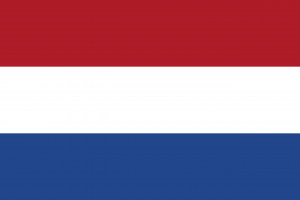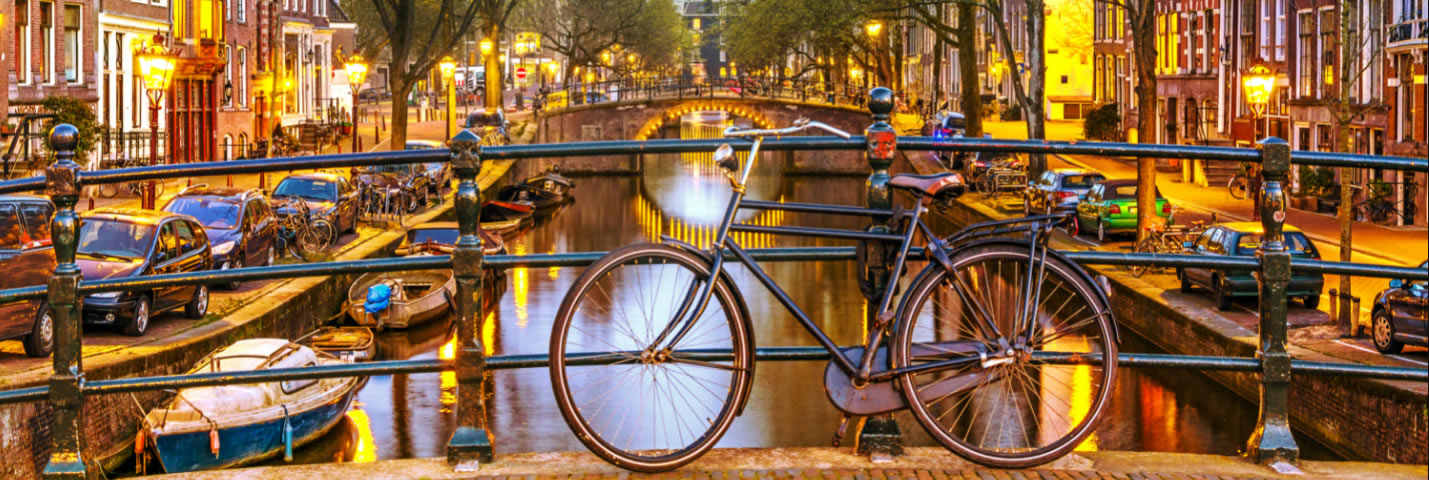Language/Dutch/Culture/Netherlands-Timeline
Jump to navigation
Jump to search
Rate this lesson:
Historical Timeline for Netherlands - A chronology of key events
Netherlands Timeline[edit | edit source]
| Date | Event |
|---|---|
| 57 BC AD | The Romans invade the Netherlands. |
| 406 | The Germans put an end to Roman domination. |
| 768 | Reign of Charlemagne, founder of the Holy Roman Empire. |
| 800 | Charlemagne is crowned emperor. |
| 834-1007 | Looting of the Vikings. |
| 843 | Division of Charlemagne's empire (Treaty of Verdun). |
| 925 | The Netherlands becomes part of the Holy Roman Empire. |
| 1419-1581 | Reigns of Philippe le Bold (1363-1404), Philippe le Bon (1419-1467), Charles the Bold (1467-1477), Maximilian of Austria (1482-1493), Philippe le Beau (1493-1506) ), Dukes of Burgundy, Charles Quint (1515-1555) and finally Philippe II of Habsbourg (1555-1 |
| 1568 | Beginning of the Eighty Years' War. |
| 1579 | Union of Utrecht and Union of Arras. |
| 1588 | Birth of the Republic of the Seven United Provinces. |
| 1602 | Foundation of the V.O.C: the Reunited East India Company, the world's first multinational, which marks the start of great expeditions and discoveries. |
| 1609-1621 | Twelve Years Truce between Spain and the Republic. |
| 1616 | Willem Schouten is the first to reach the cape which he will baptize Horn in honor of his hometown Hoorn. |
| 1619 | Jan Pietersz Coen founds Batavia (present-day Jakarta, Indonesia). |
| 1624 | Foundation of New Amsterdam on Manhattan Island (later New York). |
| 1642 | Abel Tasman discovers New Zealand and a land he will name Van Diemensland. This island will be renamed Tasmania in his honor. |
| 1648 | End of the Eighty Years' War. Peace of Münster (which also marks the end of the Thirty Years' War). |
| 1652 | Jan Van Riebeeck founds the city of Cape Town (Kaapstad). |
| 1652-1674 | English wars of 1652-1654, then 1665-1667 (Battle of Chatham) and 1672-1674. |
| 1664 | Pieter Stuyvesant surrenders to the English, New Amsterdam is renamed New York. |
| 1672 | The disaster year. Louis XIV conquers part of the country, the De Witt brothers are lynched by the mob in The Hague. |
| 1689 | Revolution of England. Stadtholder William III of Orange and his wife Marie Stuart become King and Queen of England. |
| 1722 | Discovery of Easter Island by Jacob Roggeveen. |
| 1780-1784 | Fourth English War. |
| 1793 | France declares war on the Republic. |
| 1795 | Proclamation of the Batavian Republic. |
| 1806 | Louis Napoleon (father of Napoleon III) becomes King of Holland. |
| 1810 | Annexation of the Netherlands by France. |
| 1813 | Uprising against Napoleon. Crown Prince William of Orange arrives in Scheveningen. |
| 1815 | William becomes William I of the Netherlands. Congress of Vienna. |
| 1830 | Independence of Belgium. |
| 1840 | King William II succeeds William I. |
| 1848 | Beginning of the constitutional monarchy. First Thorbecke law firm. |
| 1849 | King William III ascends the throne. |
| 1870 | Abolition of the death penalty. |
| 1873-1912 | Atjeh War. |
| 1890 | Death of King William III. His wife Emma becomes regent until the majority of her daughter Wilhelmine. |
| 1898 | Enthronement of Queen Wilhelmina. |
| 1914-1918 | First World War. The Netherlands remain neutral. |
| 1917 | Adoption of universal suffrage. |
| 1932 | Completion of the large closing dyke. The Zuiderzee becomes the IJsselmeer. |
| 1940-1945 | World War II. The German army occupies the Netherlands. |
| 1945 | Joined the United Nations. Sukarno proclaims the independence of Indonesia. |
| 1948 | Queen Juliana succeeds Queen Wilhelmine. |
| 1949 | Transfer of sovereignty to Indonesia. The Netherlands becomes a member of NATO. |
| 1953 | Catastrophic floods. |
| 1954 | Statute of the Kingdom of the Netherlands. |
| 1956 | The Netherlands is one of the founding states of the EEC. |
| 1975 | Surinam becomes an independent republic. |
| 1980 | Queen Beatrix succeeds Queen Juliana. |
| 1986 | Aruba obtains the special status of an autonomous country. The Delta plan is finished. |
| 1990 | Schengen Treaty. |
| 1992 | Treaty of Maastricht. |
| 1997 | Treaty of Amsterdam. |
| 2002 | Assassinat de Pim Fortuyn en mai et coalition entre les démocrates-chrétiens et les populistes, chute du cabinet quelques mois plus tard. |
| 2003 | Victoire des démocrates-chrétiens et des socialistes, débâcle des populistes lors des élections législatives de janvier. Le gouvernement formé est une coalition entre le CDA, le VVD et D66. |
| 2004 | Le 2 novembre 2004, l'artiste Theo van Gogh est abattu de plusieurs balles et égorgé par Mohamed Bouyeri, un islamiste en raison de ses provocations envers l'islam et du contexte international tendu. Intensification du débat sur l'intégration des minorité |
| 2005 | Le 1er juin 2005 les Pays-Bas disent non à 63 % à la Constitution européenne. |
| 2006 | Les élections législatives du 22 novembre ne donnent naissance à aucune majorité : une coalition doit se former. |
| 2007 | Le 22 février : intronisation du cabinet CDA, PVDA et Christen Unie. |
| 2009 | Le 30 avril : lors de la visite de la reine à Apeldoorn pour la fête nationale, une auto roule dans la foule avec pour but de toucher la famille royale. Cet accident traumatisant et en direct sur toutes les chaînes de télévision nationale a fait 8 morts ( |
| 2010 | Le 9 juin : lors de élections législatives, les libéraux arrivent en tête avec 31 sièges, suivis des travaillistes menés par Job Cohen, l'ancien maire d'Amsterdam. Le PVV (parti pour la liberté) de Geert Wilders devient la troisième force politique du pay |
| 2011 | Le 4 avril : une fusillade éclate dans un centre commercial d'Alphen-sur-le-Rhin (Alphen aan den Rijn), dans l'ouest des Pays-Bas, bilan 6 morts et une dizaine de blessés. Le projet de fermer les coffee-shops aux touristes étrangers se renforce : à la fin |
| 2012 | Le 17 février, le prince Friso, frère du prince héritier Willem-Alexander, est victime d'une avalanche dans les Alpes autrichiennes lors des vacances d'hiver dans leur fief tyrolien de Lech am Arlberg. Malgré les soins prodigués par les secours, il sombre |
| 2012 | Le 21 avril, un accident ferroviaire survient à Westerpark à l'ouest d'Amsterdam. Deux trains entrent en collision frontale. Environ 117 personnes ont été blessées, l'une d'entre elles est morte. |
| 2012 | Le 23 avril 2012, le gouvernement de Mark Rutte démissionne provoquant une crise majeure aux Pays-Bas. |
| 2012 | 12 septembre : les élections législatives sont remportées par les troupes libérales de Mark Rutte et les travaillistes. |
| 30-avr.-13 | Le prince Willem-Alexander, 46 ans, accède au trône et devient le plus jeune souverain d'Europe, succédant à sa mère la reine Beatrix qui a abdiqué après 33 ans de règne. |
| 12-août-13 | Le prince Friso des Pays-Bas, frère du roi Willem-Alexander meurt des suites de son accident de ski. |
| 2016 | L'année fut marquée par plusieurs événements de marque parmi lesquels le championnat d'Europe d'athlétisme, l'Europride et surtout la présidence néerlandaise de l'UE qui fit d'Amsterdam la capitale de l'Europe au premier semestre. |
| 2017 | Année cruciale qui débute le 15 mars par des élections législatives (résultats non connus lors de la rédaction du guide). |
| 2002 | Assassination of Pim Fortuyn in May and coalition between Christian Democrats and populists, the cabinet collapsed a few months later. |
| 2003 | Victory for the Christian Democrats and Socialists, debacle of the populists during the legislative elections in January. The government formed is a coalition between the CDA, the VVD and D66. |
| 2004 | On November 2, 2004, the artist Theo van Gogh was shot several times and slaughtered by Mohamed Bouyeri, an Islamist because of his provocations against Islam and the tense international context. Intensification of the debate on the integration of ethnic |
| 2005 | On June 1, 2005, the Netherlands say 63% no to the European Constitution. |
| 2006 | The legislative elections of November 22 do not give rise to a majority: a coalition must be formed. |
| 2007 | February 22: induction of CDA, PVDA and Christen Unie. |
| 2009 | April 30: During the Queen's visit to Apeldoorn for the National Day, a car drives through the crowd with the aim of reaching the royal family. This traumatic accident and live on all national television channels left 8 dead (including the driver) and man |
| 2010 | June 9: In general elections, the Liberals lead with 31 seats, followed by Labor led by Job Cohen, the former mayor of Amsterdam. Geert Wilders' PVV (party for freedom) becomes the third political force in the country with 24 elected officials. |
| 2011 | April 4: a shooting breaks out in a shopping center in Alphen-sur-le-Rhin (Alphen aan den Rijn), in the west of the Netherlands, six dead and ten wounded. The plan to close the coffee-shops to foreign tourists is strengthening: at the end of the year, the |
| 2012 | On February 17, Prince Friso, brother of Crown Prince Willem-Alexander, suffered an avalanche in the Austrian Alps during winter holidays in their Tyrolean stronghold of Lech am Arlberg. Despite the care provided by the emergency services, he sank into a |
| 2012 | On April 21, a train accident occurs at Westerpark in the west of Amsterdam. Two trains collide head-on. About 117 people were injured, one of them died. |
| 2012 | On April 23, 2012, the government of Mark Rutte resigned causing a major crisis in the Netherlands. |
| 2012 | September 12: the general elections are won by the liberal troops of Mark Rutte and the Labor Party. |
| April 30, 2013 | Prince Willem-Alexander, 46, ascends to the throne and becomes the youngest ruler in Europe, succeeding his mother Queen Beatrix who abdicated after 33 years of reign. |
| August 12, 2013 | Prince Friso of the Netherlands, brother of King Willem-Alexander, dies from his skiing accident. |
| 2016 | The year was marked by several landmark events including the European Athletics Championship, Europride and above all the Dutch EU Presidency which made Amsterdam the capital of Europe in the first half of the year. |
| 2017 | Crucial year which begins on March 15 with legislative elections (results not known when the guide was written). |


